Reds' Todd Frazier triumphs in thrilling new-look Home Run Derby
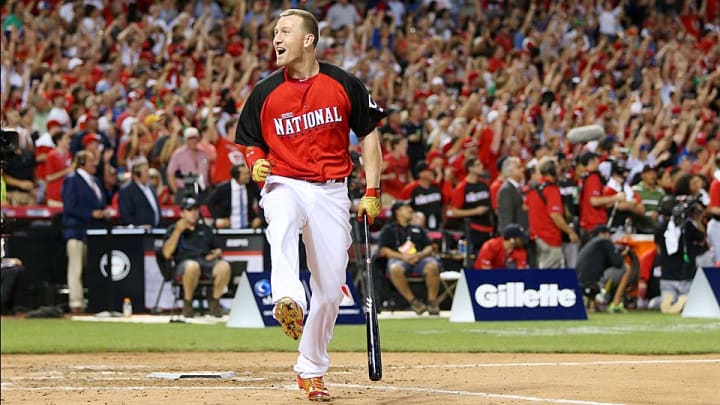
CINCINNATI—Todd Frazier may very well have game-ending home runs in his future that prove more meaningful than the walkoff of sorts he hit on Monday night, but it will be difficult for any of them to be as memorable.
Playing in front of his home fans at Great American Ball Park, the Reds' third baseman crushed one to the seats in left centerfield on his first bonus-round swing in the final round of the Home Run Derby, giving him a 15–14 win over Dodgers rookie Joc Pederson.
A year after falling short in the final, Frazier walked away with the hardware this time, becoming the third Red to win the competition—Dave Parker won the first Home Run Derby in 1985, and Eric Davis won in '89—and just the second player to win in front of his home crowd, joining the Cubs’ Ryne Sandberg ('90) in that category.
Here are three thoughts on this year’s power-packed derby.
Frazier plays hometown hero
Frazier entered the derby as the first real hometown threat to win the event since Albert Pujols, then with the Cardinals, competed in 2009. He certainly didn’t disappoint.
From Frazier's first at-bat, the largely red-clad crowd belted out chants of “Let’s go Frazier” during his timeouts or whenever it seemed their slugger needed a lift, and the fans let out massive roars at seemingly every ball that threatened to leave the park, with those roars growing louder in each passing round.
2015 Home Run Derby tracker: Commentary, analysis and video
Those fans had plenty to cheer about, as Frazier, thanks in part to the new format (more on that below), enjoyed a drama-packed showdown in each of his three rounds. Seeded second, the 29-year-old was the higher seed in all three matchups and thus hit second each time, meaning he and those watching knew exactly how many homers he needed to eliminate his counterpart.
Frazier seemed to be facing the prospect of an early exit after Prince Fielder, who has won the derby twice and whose lefthanded swing seemed tailor-made to produce a winner at Great American, launched 13 home runs in the first round. Later saying he was buoyed by the partisan crowd, Frazier came back to tie Fielder’s total in regulation and also ended that round with his first swing in bonus time, moving on to face the Blue Jays’ Josh Donaldson.
Frazier again produced a dramatic win in the semis, as his winning 10th homer of the round struck dirt in the bullpen in left-centerfield just as the clock hit zero. That set up the final matchup against the 23-year-old Pederson, who had dispatched Pujols, the senior participant of the field (and the only one who is a member of the 500-home run club), in the semis.
• CHEN: Reds star Frazier emerges as a baseball folk hero
Pederson led off by swatting 14 home runs, but it wouldn’t be enough to best Frazier. After his clincher, he embraced his brother Charlie, his pitcher for the night, before joining the rest of his family and the National League All-Stars in celebration. Frazier called it one of the best moments of his career.
“Bringing this hardware home is something I’ve always wanted to do, and it’s just an unbelievable feeling,” Frazier said. “Right now I’m pretty exhausted, so my energy level’s not as high as it was earlier, but it is [unbelievable]. Once I wake up in the morning and really understand what happened, it’s going to be exciting to see this [trophy] in my house.”
It's been a rough season for the Reds, who entered the All-Star break in fourth place in the NL Central with a 39–47 record. Things don't appear as if they'll be getting any brighter in the second half either, as the team prepares to unload several key cogs in an effort to rebuild. What Frazier’s performance did was give the city a positive memory to take from a woeful summer, and it imbued the derby with an excitement that it doesn’t often reach.
Thumbs-up to the new format
Of course, part of the excitement on Monday night was merely a result of the derby’s change in format.
This year brought a bracket-style competition for every round, and the former outs-based system was replaced by a time-based one, in which players initially were scheduled to have five minutes to hit as many home runs as possible, with bonus time given based on length of home runs. (Due to a forecast of rain for later in the night in Cincinnati, MLB decided Monday to shorten each round to four minutes and limit maximum bonus time to one 30-second round, which was earned by hitting at least two home runs that exceeded 425 feet in a regular round).
Power Rankings: Cardinals edge Pirates for top spot as first half ends
The new format was a rousing success. Derbies in recent years have had a tendency to drag on, but the new timed system negated that, and it meant that players on Monday swung at almost everything. When you’re competing against time, you can’t afford to take many pitches, if any.
More swings meant more home runs—159 of them, to be exact, up from 78 last year, though that disparity is also likely due to the bandbox that is GABP. Perhaps just as important, there were far fewer dud rounds. Gone were the interminable at-bats that ended in just two or three or even zero home runs; the lowest total in Monday’s derby was eight.
The bracket setup worked well too, and with each matchup ending as soon as the second competitor hit one more home run than the player he was competing against, the “walkoff” potential inherent in the second at-bats of each round made for greater entertainment. The bonus round was also interesting, with the short break in between that and the end of the regular round providing time for fans and viewers to get excited.
• Sports Illustrated's 2015 MLB All-Star Game coverage
There are some downsides of the new format. For one, there’s an aspect of unfairness. Fielder’s 13 home runs, for example, would’ve bested or tied five of his fellow first-round competitors, but because he was matched up with Frazier, his night was done. Fatigue was an issue as well, as taking as many swings as possible in four-plus minutes appeared to take its toll on several of the competitors (though fatigue was also still a factor under the previous format). And going the full five minutes might prove a bit too long, as the rain-shortened four seemed to work almost perfectly on Monday.
But overall, the new format produced a better Home Run Derby experience. More home runs, more excitement. It’s not rocket science.
Mixed night for the young guns
This season—and this All-Star Game—has largely been defined by the infusion of youth that’s taken place, and the derby was no exception, with young players representing half of the field: Manny Machado, Pederson, Anthony Rizzo and Kris Bryant. Pederson and Bryant were just the seventh and eight rookies all-time to compete in the event.
Kyle Schwarber, Lucas Giolito impress as Team USA rolls in Futures Game
It proved to a be a mixed bag for the quartet. Rizzo was responsible for the aforementioned eight-homer round, the worst of the night, and he was eliminated by Donaldson in the first round. Bryant and Machado were also eliminated in the first round, with the former falling to Pujols and the latter to Pederson.
But there was Pederson, of course, who snuck into the final, besting Machado by one home run and doing the same in his upset of Pujols in their semifinal. When he led off the final with 14, it seemed he had a solid chance at stealing the show on behalf of his fellow greenhorns—until Frazier ensured that didn’t happen.
Despite all four young players falling short, though, their presence helped illustrate the youth movement that’s taken place this year. And that will be on display again in the All-Star Game on Tuesday, when Mike Trout, Bryce Harper, Pederson and others will be among the stars shining brightest.
The Home Run Derby's Greatest Moments
1985
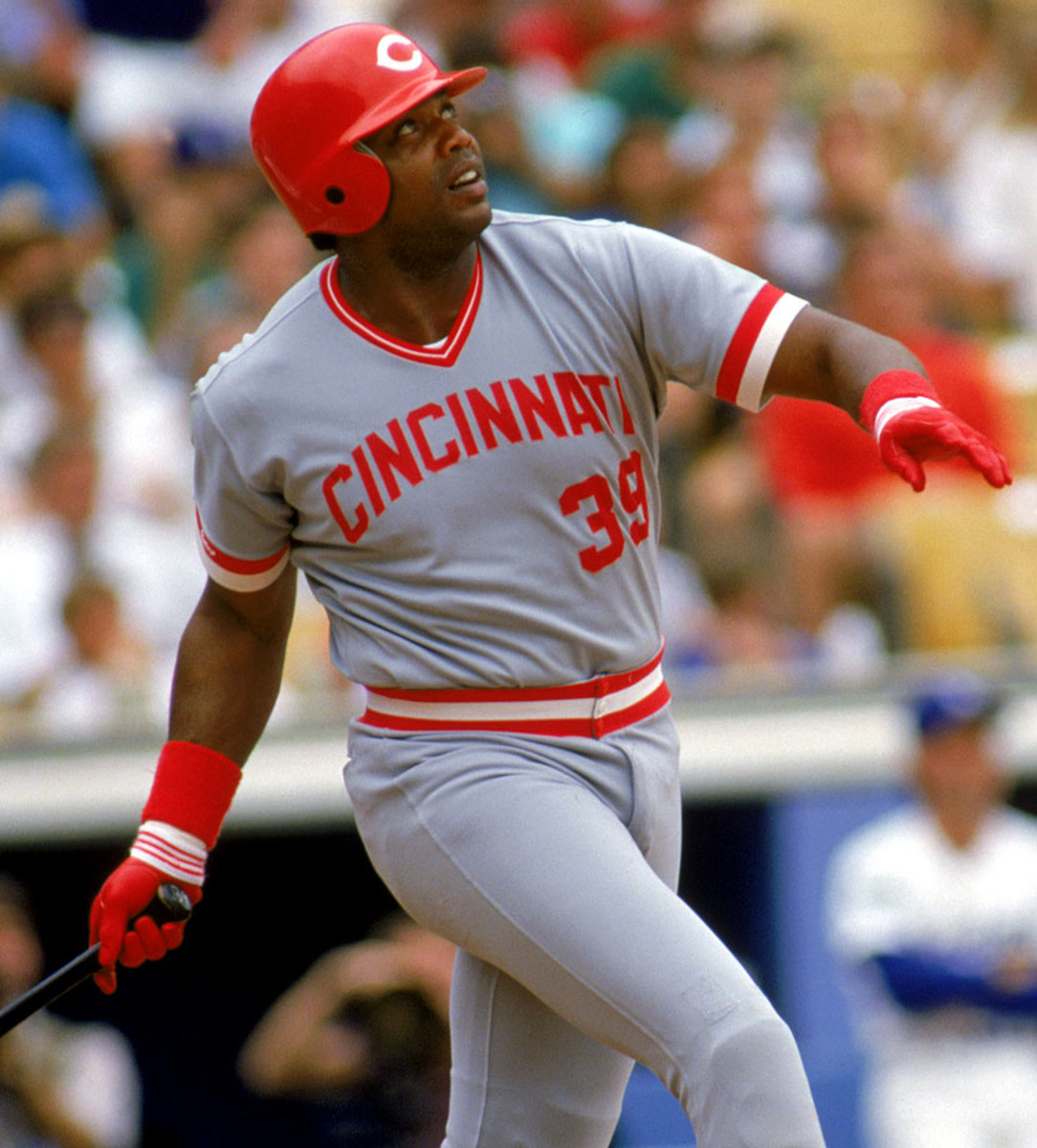
Dave "The Cobra" Parker was the original Home Run Derby champion, belting six home runs to defeat a field that included Jim Rice and future Hall of Famers Eddie Murray, Carlton Fisk, Cal Ripken Jr. and Ryne Sandberg at the Metrodome. Back then it was an AL vs. NL competition, and the Junior Circuit won 17-16.
1990
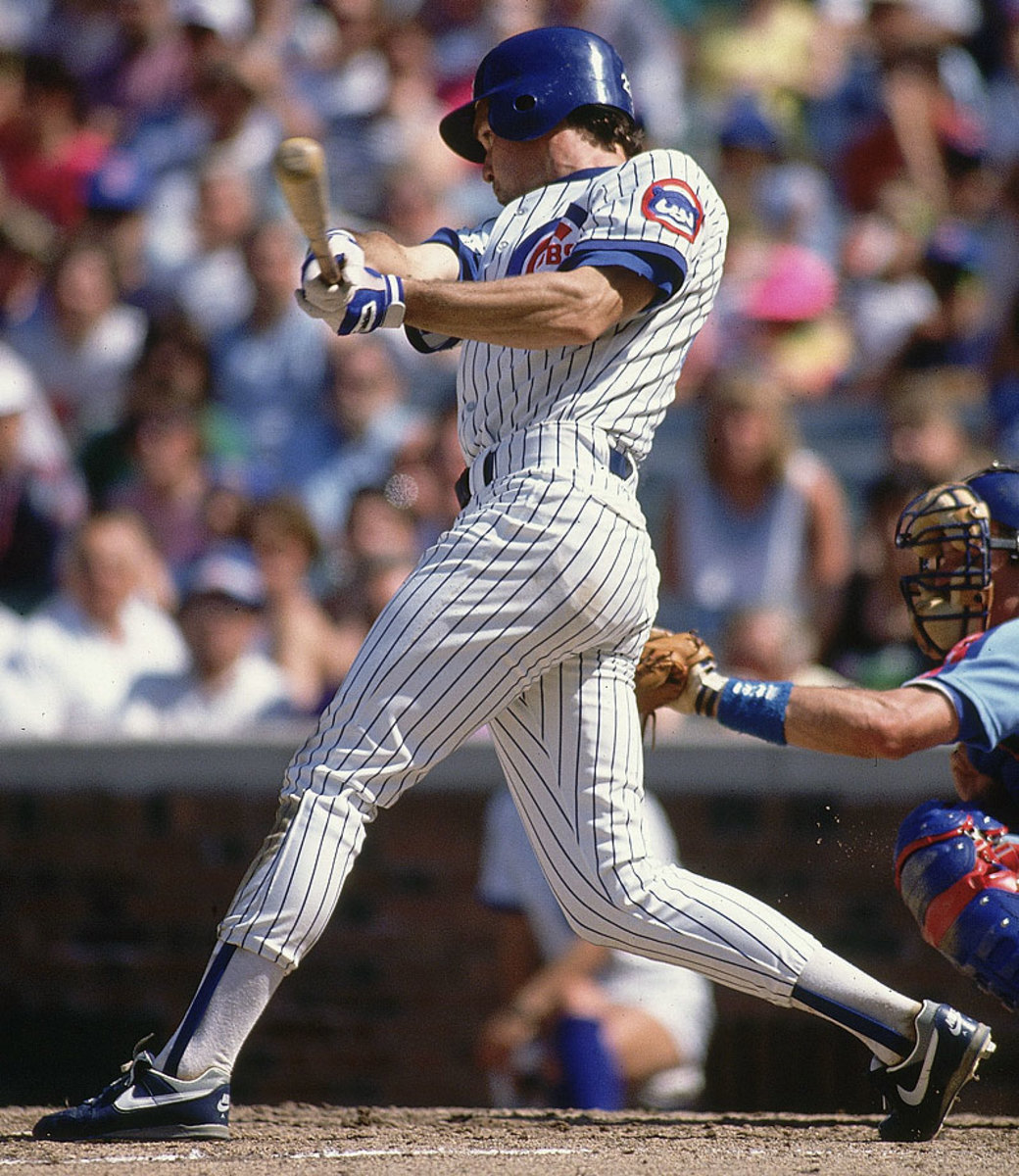
Future Hall of Famer Ryne Sandberg took home top honors in a Derby that was decidedly toned down from what it would become in later years. He needed only three home runs to win it at Wrigley Field, his home ballpark.
1991
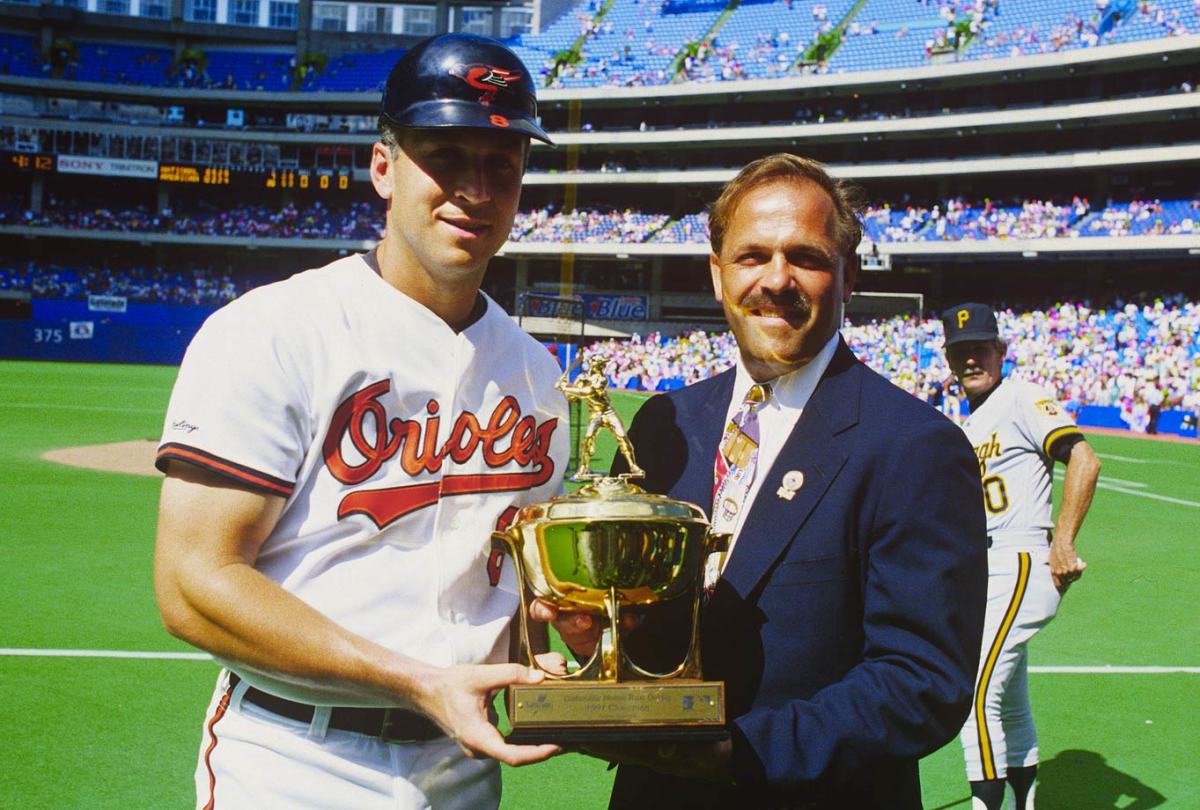
Cal Ripken Jr. blew away the field with 12 home runs at the Skydome and then homered in the All-Star Game as well to take home MVP honors. He is one of only three players to win the Derby and homer in the Game, with Frank Thomas (1995) and Garret Anderson (2003) being the others.
1993
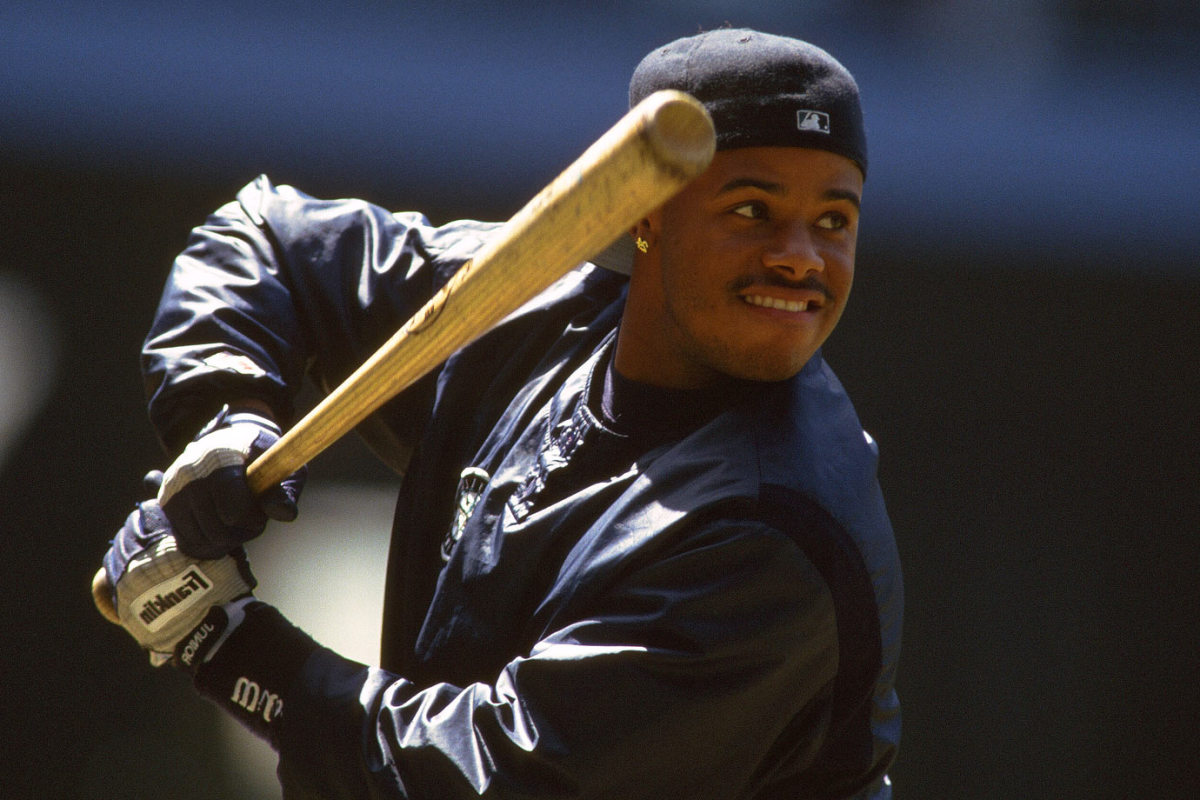
Ken Griffey Jr. led the American League to a 21-12 win over the NL, thanks in part to a home run off the warehouse across the street from Camden Yards.
1996

Future Home Run King Barry Bonds took home his only Derby crown at Veterans Stadium long before any rumors of performance-enhancing drugs surfaced.
1998
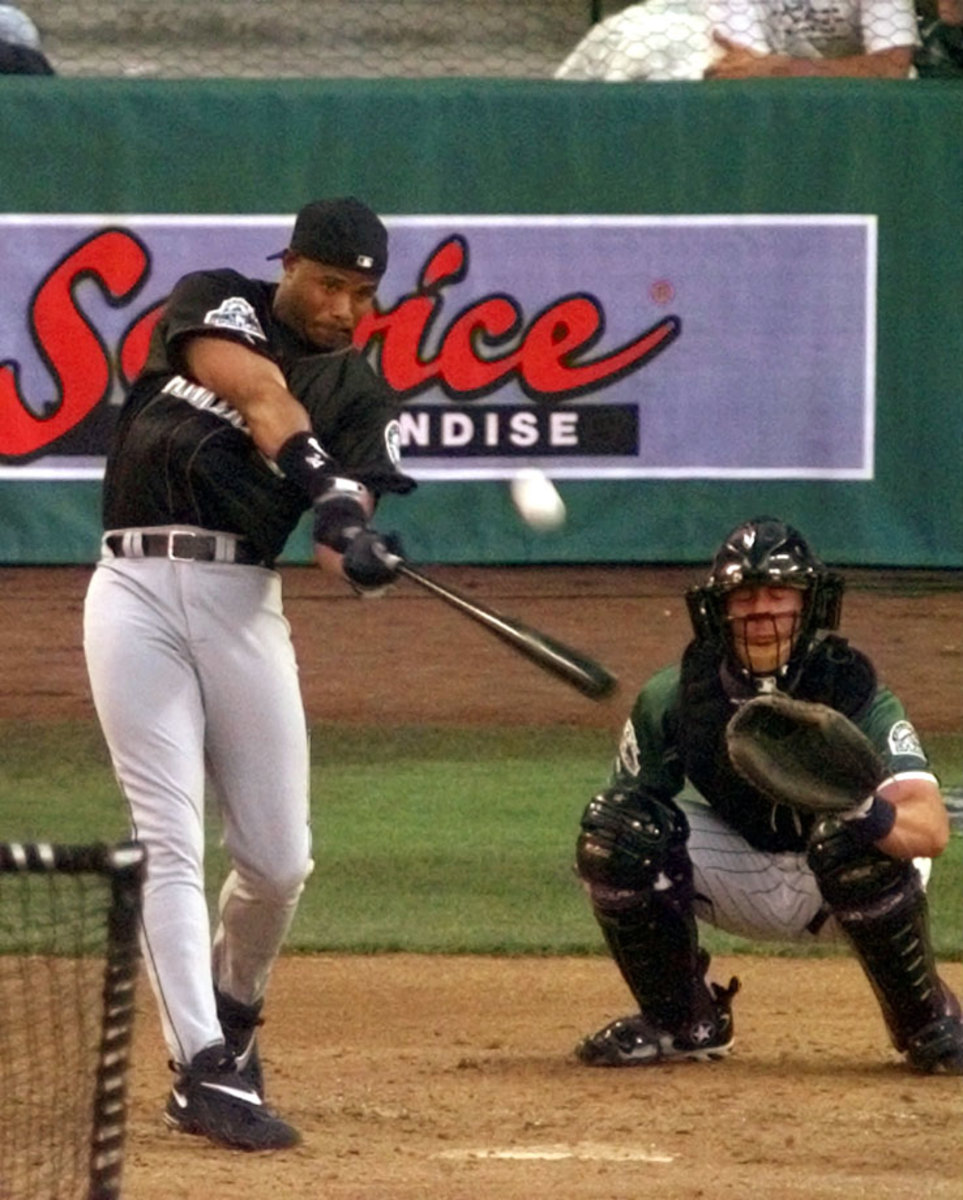
Ken Griffey Jr. became the first two-time winner of the Derby by edging Jim Thome 19-17 at Coors Field.
1999

Reigning single-season Home Run King Mark McGwire lived up to his title by blasting 13 home runs over the Green Monster to open the Derby at Fenway Park. McGwire would falter in the second round, though, as Ken Griffey Jr. took his second consecutive crown.
2000

Sammy Sosa electrified the Turner Field crowd by crushing the field with a then-record 26 homers. The next-highest total belonged to Boston's Carl Everett with 12, though it was Ken Griffey Jr. who made it to the final round opposite Sosa.
2004
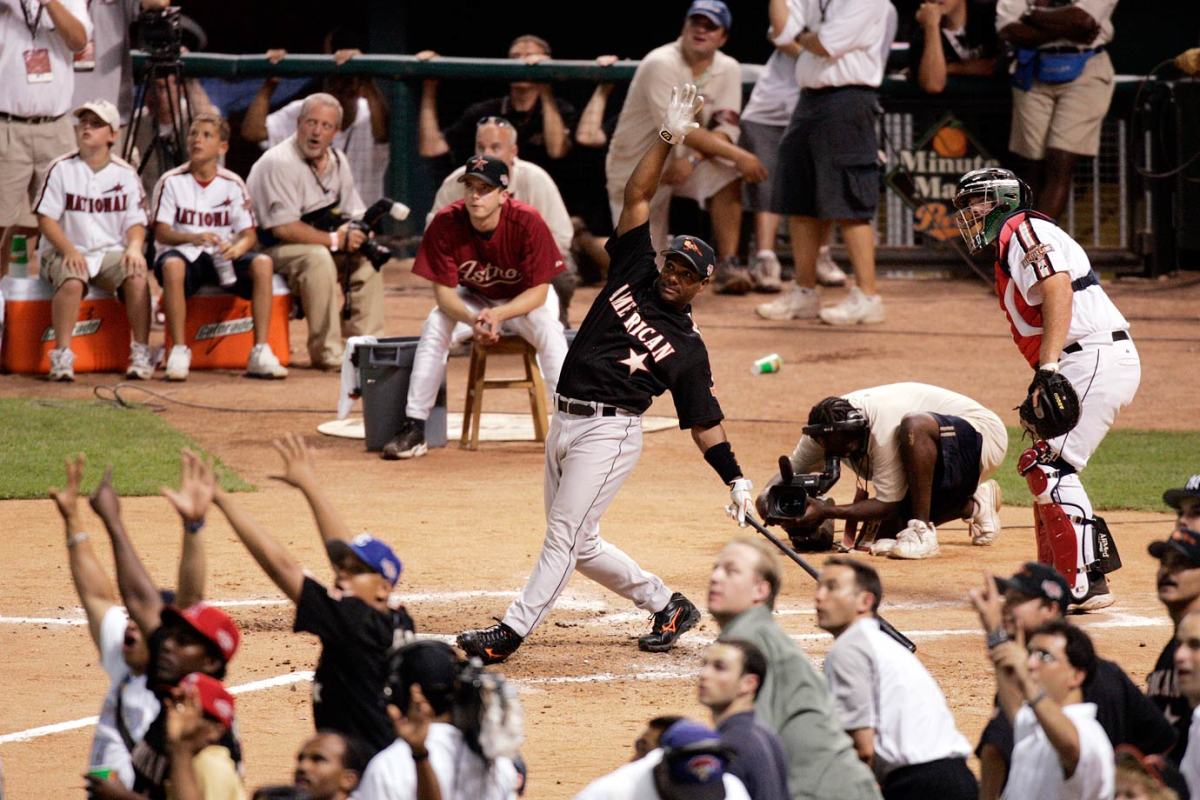
At Minute Maid Park in Houston, Miguel Tejada topped hometown favorite Lance Berkman in the final round with five home runs and an overall total of 27.
2005

At Comerica Park, Bobby Abreu went ballistic with a record 24 home runs in the first round and belted another 11 in the finals to defeat Pudge Rodriguez. Abreu would hit 41 total for the Derby to set an overall record. Ironically, Abreu would hit only six home runs in the second half of the season.
2006
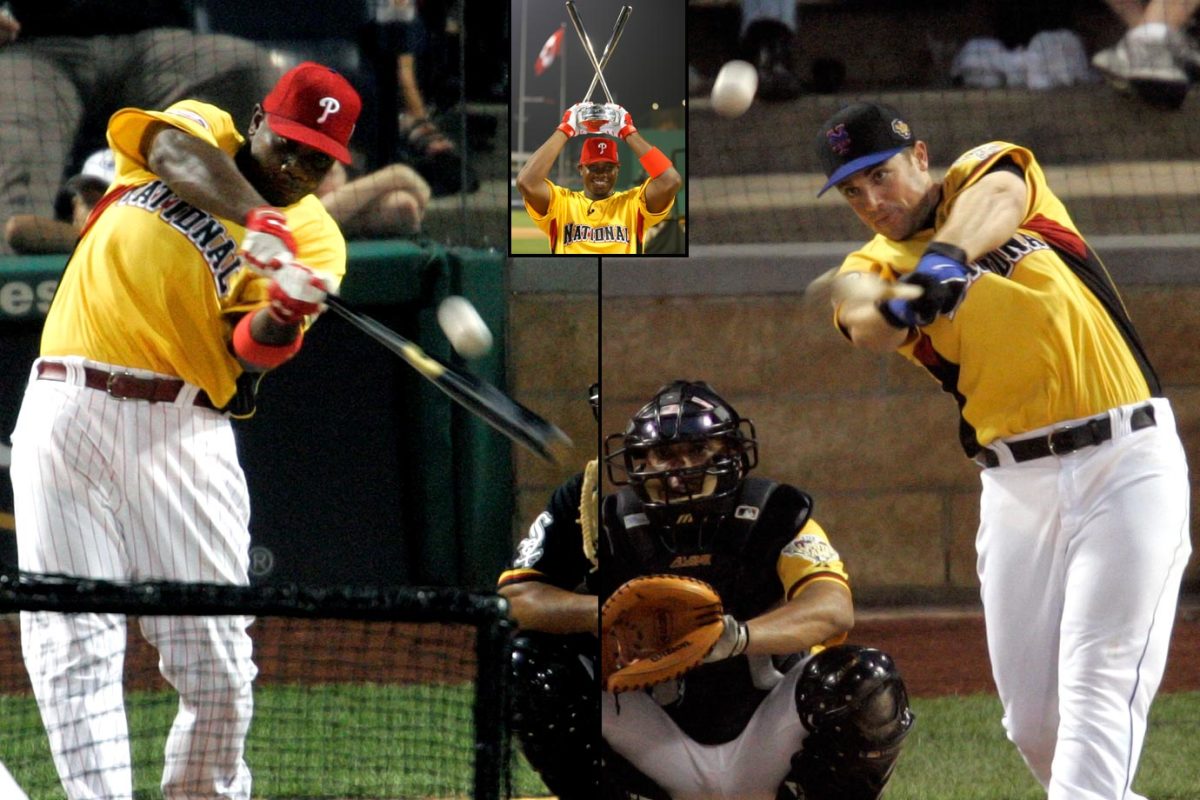
Ryan Howard's 23rd and final homer eliminated runner-up David Wright (22 HRs) and clinches his first Derby crown in Pittsburgh.
2007
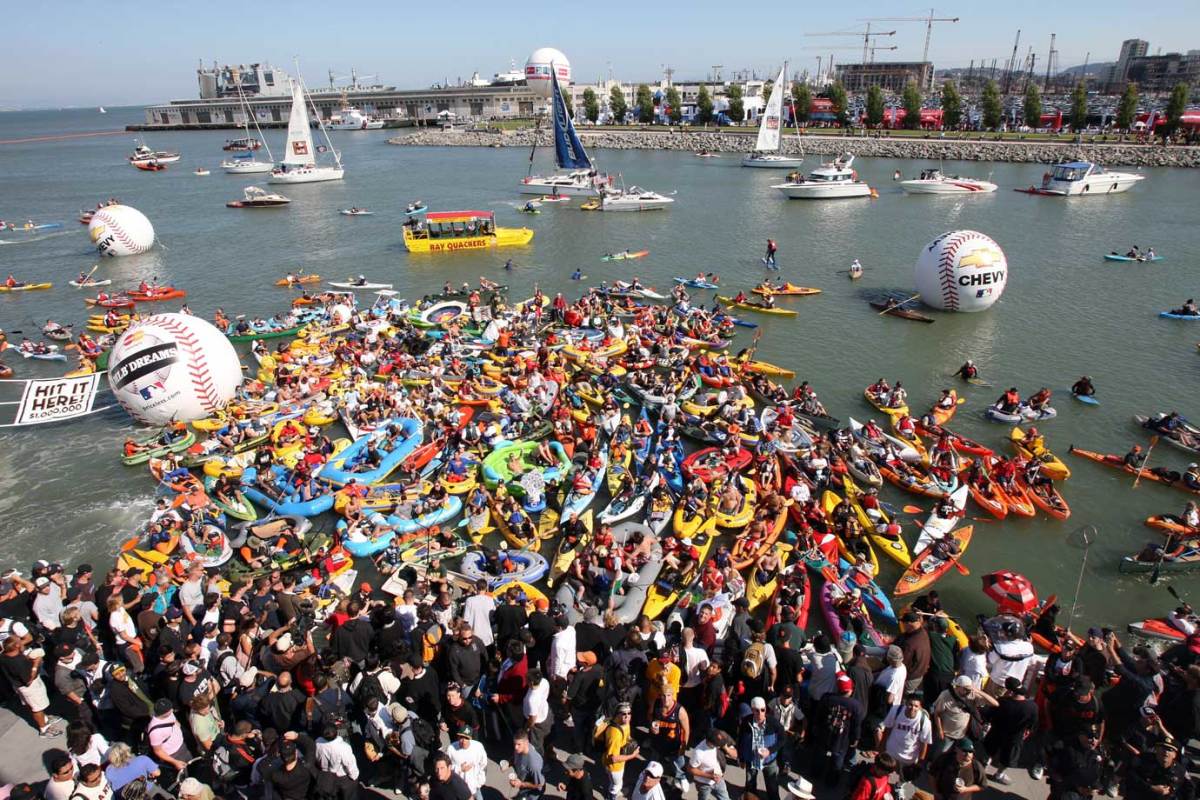
The kayaks came out in droves for the Derby in San Francisco, but they went home empty-handed -- zero homers would be counted as "Splash Hits."
2008
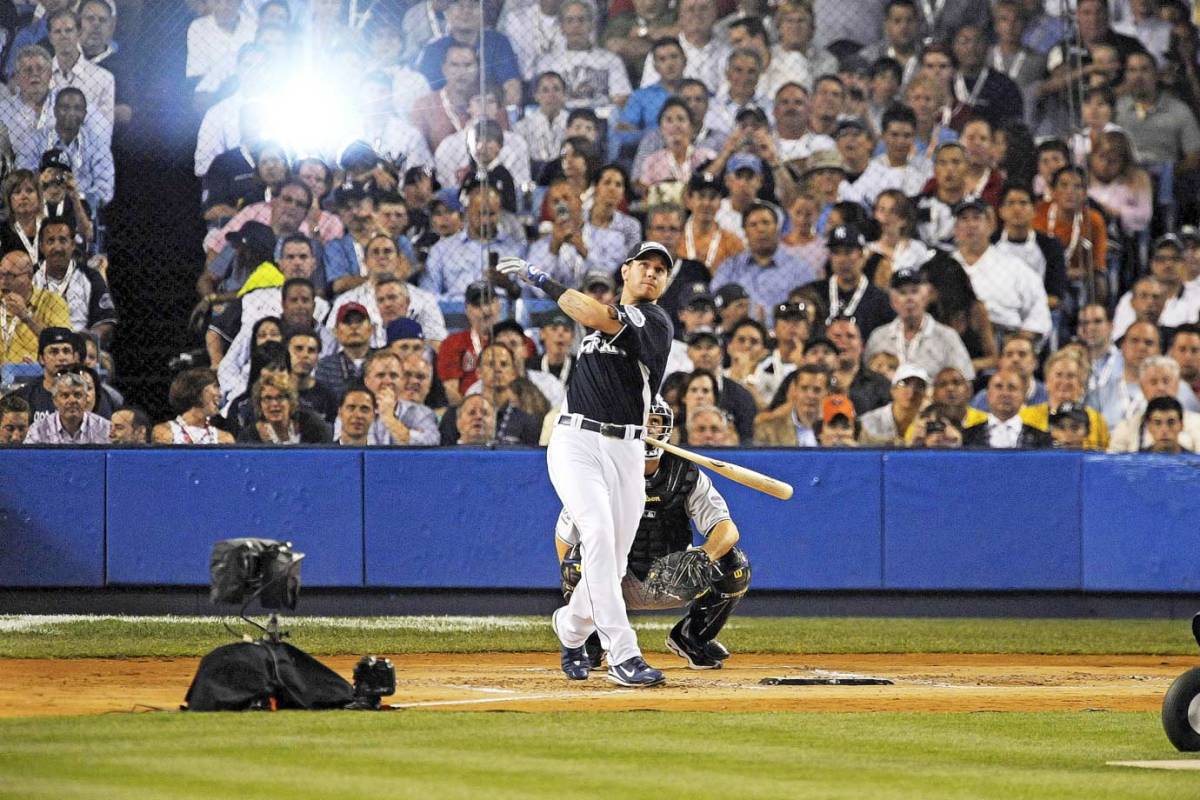
While Justin Morneau was the official winner, it was Josh Hamilton who captured the hearts of Yankee Stadium fans, breaking Bobby Abreu's mark for one round by clubbing a Derby-record 28 homers in the first round.
2011
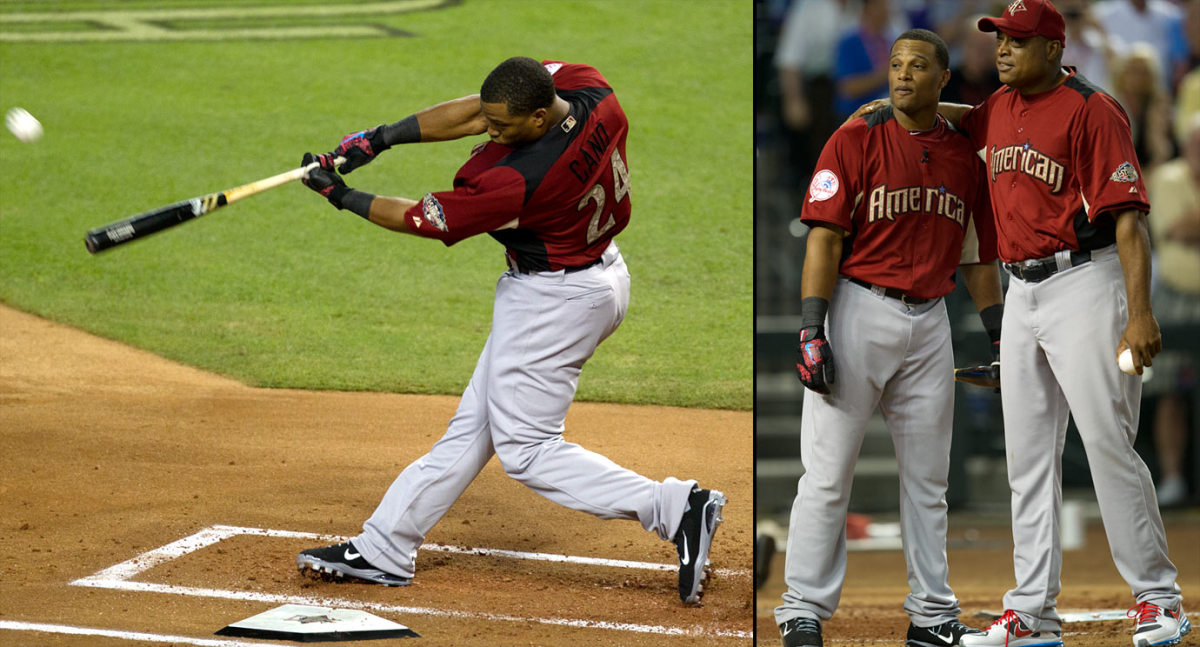
Robinson Cano outslugged Adrian Gonzalez to win a Home Run Derby that turned into a Yankees-Red Sox showdown. Batting last and being pitched to by his father, Cano defeated Gonzalez 12-11 in the finals after they each hit 20 home runs through two rounds
2012
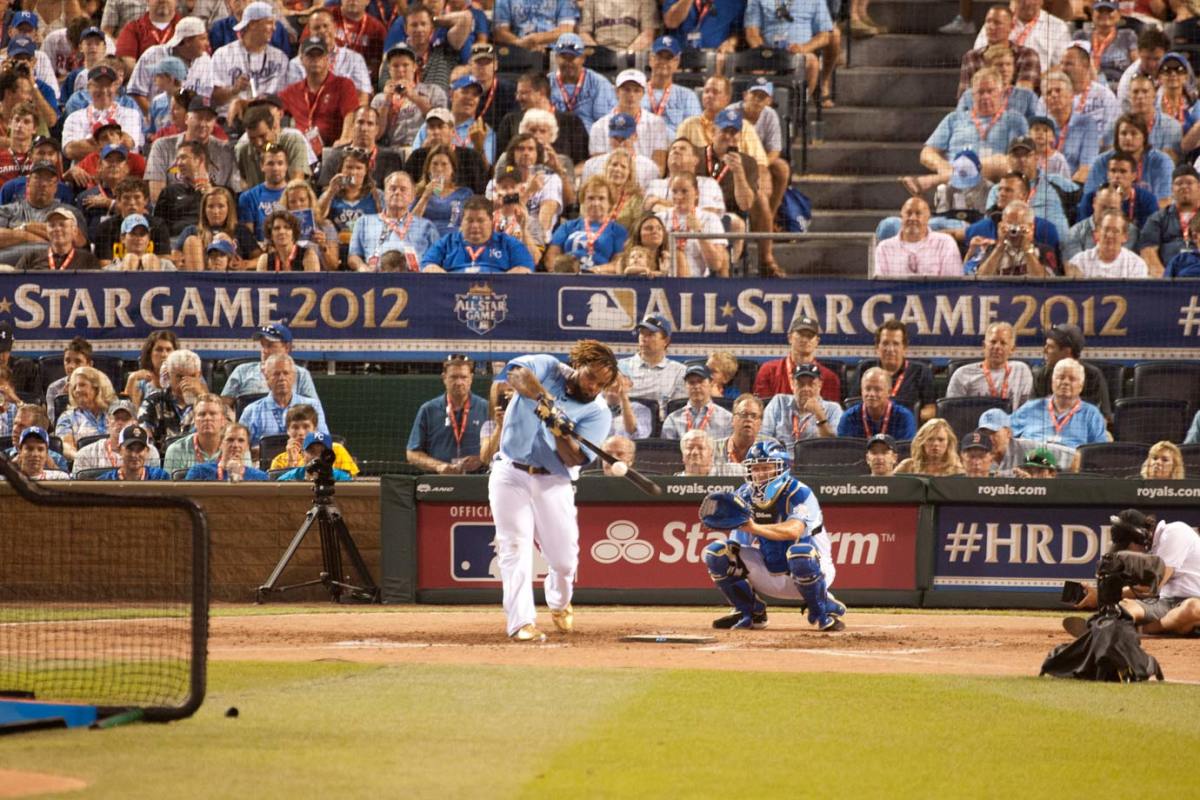
Prince Fielder tied the finals record as he beat Jose Bautista 12-7 at Kauffman Stadium. The Tigers slugger, who hit 28 homers in all, including a 476-foot shot, joined Ken Griffey Jr. as the only players with multiple Derby wins.
2013
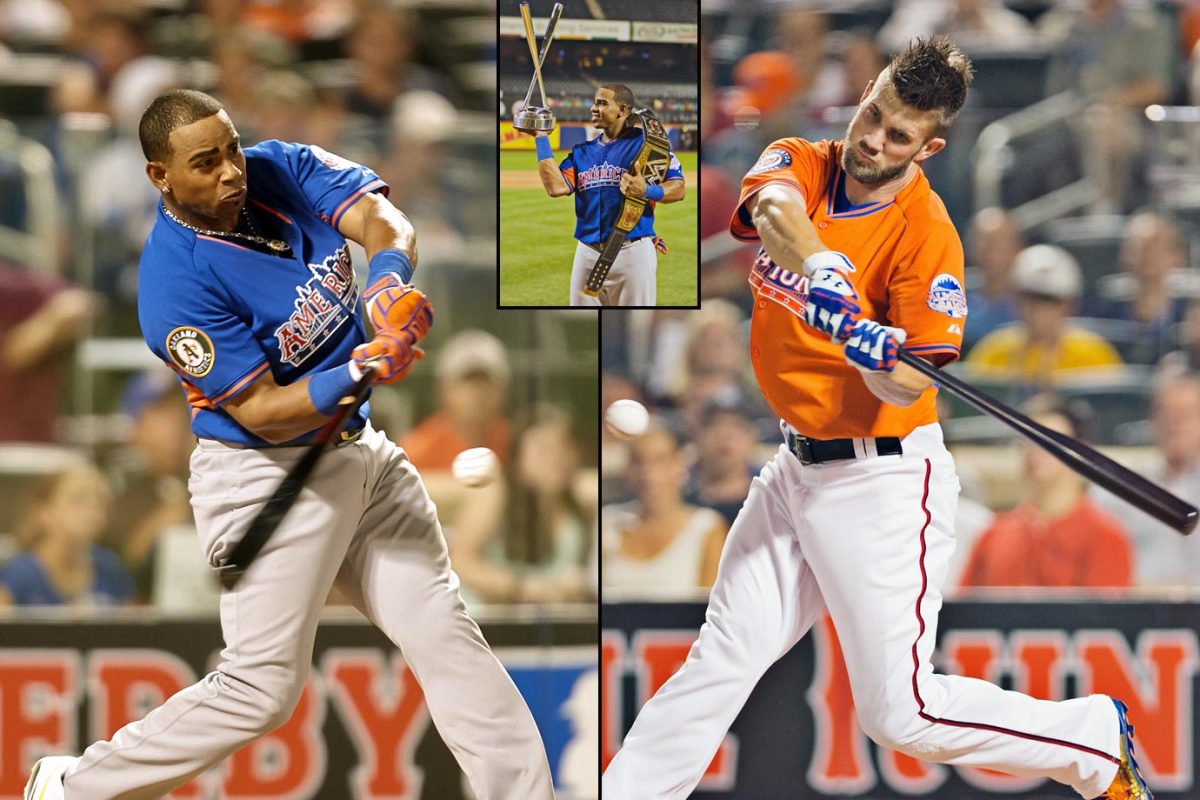
Yoenis Cespedes became the first player left out of the All-Star Game to take home the crown, needing just five outs to pass Bryce Harper in the finals with a 455 foot shot to center field. In only his second major league season, the outfielder from Cuba hit a whopping 17 home runs in the first round—more than any other player managed in their first two trips to the plate. Cespedes would go on to win again next year.
2015
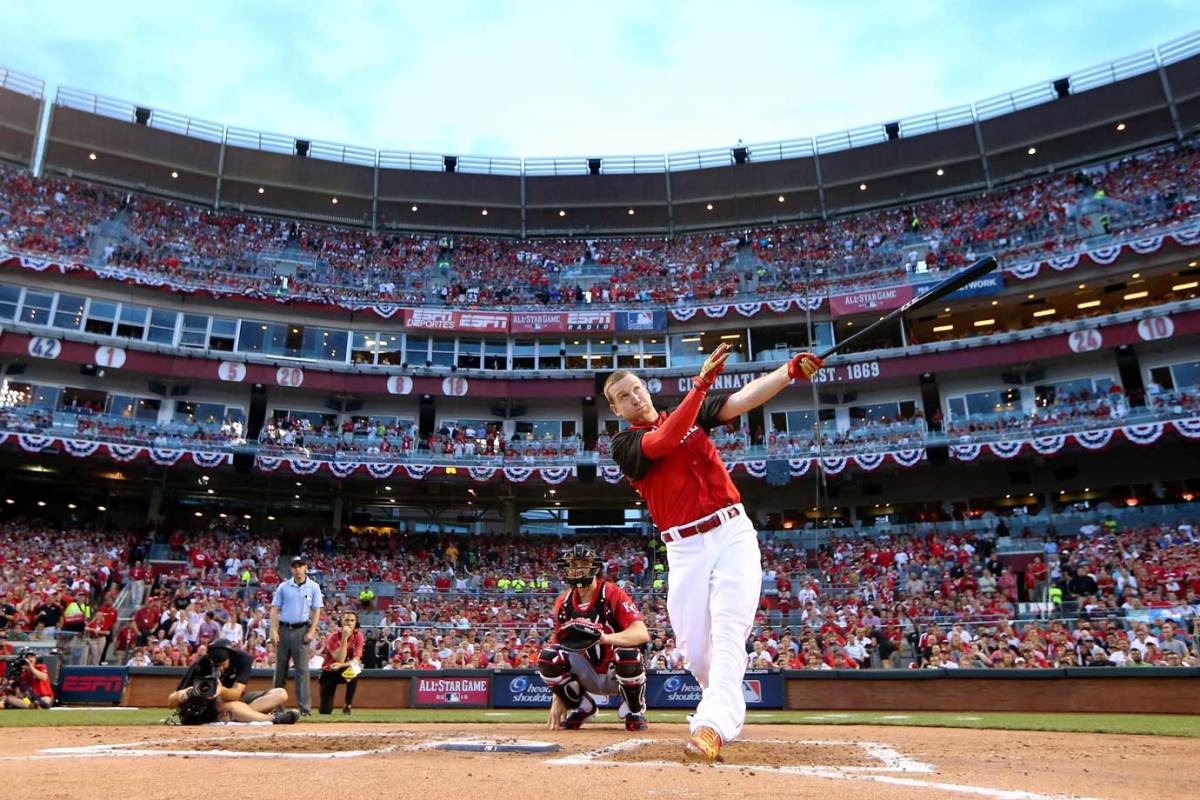
In the first year with timed rounds, it came down to the wire. Playing in front of his home fans at Great American Ball Park, Todd Frazier crushed one to the seats in left centerfield on his first bonus-round swing in the final round, giving him a 15–14 win over Dodgers rookie Joc Pederson. A year after falling short in the final, the Reds third baseman walked away with the hardware this time, becoming just the second player to win in front of his home crowd, joining the Cubs’ Ryne Sandberg (1990) in that category.
2016
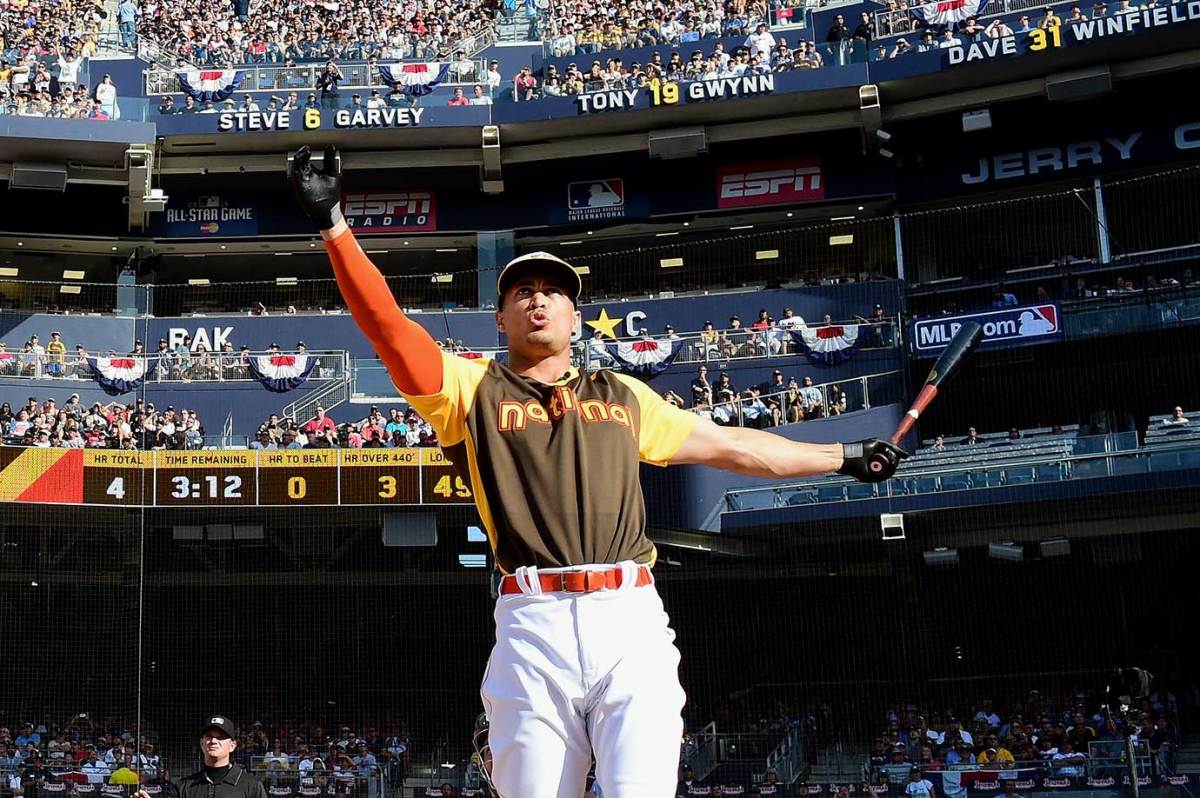
Giancarlo Stanton crushed a Derby-record 61 home runs en route to a victory. Stanton cruised through each of his matchups, winning 24–7 against Robinson Cano, 17–14 against Mark Trumbo, and 20–13 against defending champ Todd Frazier in the final round. Stanton hit towering shot after towering shot, wowing the crowd with his ability to spray balls all over the field. The Marlins outfielder hit the 10 longest bombs of the night, as well as 18 of the 19 longest.
